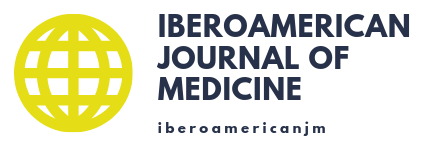Surveillance of Cyclospora cayetanensis Epidemics in USA from Long-Term National Outbreaks Reporting System-Based Monitoring: An Observational Study Using Statistical Process Control Methodologies
Mostafa Essam Ahmed Mostafa Eissa
Abstract
Cyclosporiasis epidemics are caused primarily by food contaminated essentially with Cyclospora cayetanensis protozoa from Phylum Apicomplexa. National Outbreaks Reporting System (NORS) provides comprehensive monitoring and records for outbreaks in the USA. The pattern of the microbial epidemics could be investigated using statistical process control (SPC) techniques including Pareto analysis and control charts. The incidence of this outbreak is higher in some states more than others, especially Florida and transmitted mainly through herbal food constituents as a vehicle. Process-behavior charts show disease patterns and trends with the rate of occurrence per day 14.4%. Most of illness cases tend to occur in the summer environment except for March in one-year due spiking in the number of affected individuals during a solitary outbreak episode.
Keywords
References
1. Burki F, Kaplan M, Tikhonenkov DV, Zlatogursky V, Minh BQ, Radaykina LV et al. Untangling the early diversification of eukaryotes: a phylogenomic study of the evolutionary origins of Centrohelida, Haptophyta and Cryptista. Proc Biol Sci. 2016;283(1823). doi: 10.1098/rspb.2015.2802.
2. Ghimire TR. Redescription of genera of family Eimeriidae Minchin, 1903. International Journal of Life Sciences 2010;4:26-47. doi: https://doi.org/10.3126/ijls.v4i0.3285.
3. Ahmed Mostafa Eissa ME. Long-Term Monitoring of Giardia as an Etiological Agent for Food-Borne Outbreaks in USA: A Brief Report. Open J Nutr Food Sci. 2019;1(1):1002.
4. CDC. DPDx - Laboratory Identification of Parasites of Public Health Concern. CDC - DPDx - Cyclosporiasis. Cdc.gov. 2019. Available from https://www.cdc.gov/dpdx/cyclosporiasis/index.html (accessed May 2019).
5. Eissa MEAM. Statistical process control research of toxicological outbreaks in USA: an opinion from long-term web-based trending for selected cases. MOJ Toxicol. 2019;5(2):73-6. doi: 10.15406/mojt.2019.05.00157.
6. Eissa MEA. The Use Failure Mode and Effects Analysis as Quantitative Risk Analysis Tool. Opinion| J App Sci | Redelve: RD-APS-10009.2019.
7. Ortega Y, Sanchez R. Update on Cyclospora cayetanensis, a Food-Borne and Waterborne Parasite. Clinical Microbiology Reviews. 2010;23(1):218-234. doi: 10.1128/CMR.00026-09.
8. Hoge CW, Shlim DR. Infectious Disease and Antimicrobial Agents. Cyclospora cayetanensis. Antimicrobe.org, 2019. Available from http://www.antimicrobe.org/b034.asp (accessed May 23, 2019).
9. CDC. CDC is investigating a multistate outbreak of cyclosporiasis linked to McDonald’s salads | CDC Online Newsroom. Cdc.gov. 2018. Available from https://www.cdc.gov/media/releases/2018/s0716-mcdsalads.html (accessed May 2019).
10. U.S. Food and Drug Administration. Cyclospora Illnesses Linked to Fresh Express Salad Mix at McDonalds, 2018. Available from https://www.fda.gov/Food/RecallsOutbreaksEmergencies/Outbreaks/ucm613513.htm (accessed May 2019).
11. CDC. Cyclosporiasis - Resources for Health Professionals. Treatment for Cyclosporiasis. Cdc.gov., 2018. Available from https://www.cdc.gov/parasites/cyclosporiasis/health_professionals/tx.html (accessed May 2019).
12. U.S. Food and Drug Administration. Conversations with Experts on Food Topics. New Testing Method Developed by FDA Detects Cyclospora in Salad Mix, 2018. Available from: https://www.fda.gov/food/conversations-experts-food-dietary-supplements-and-cosmetics-topics/new-testing-method-developed-fda-detects-cyclospora-salad-mix (accessed June 2019).
Submitted date:
10/26/2019
Reviewed date:
11/19/2019
Accepted date:
11/21/2019
Publication date:
11/21/2019

